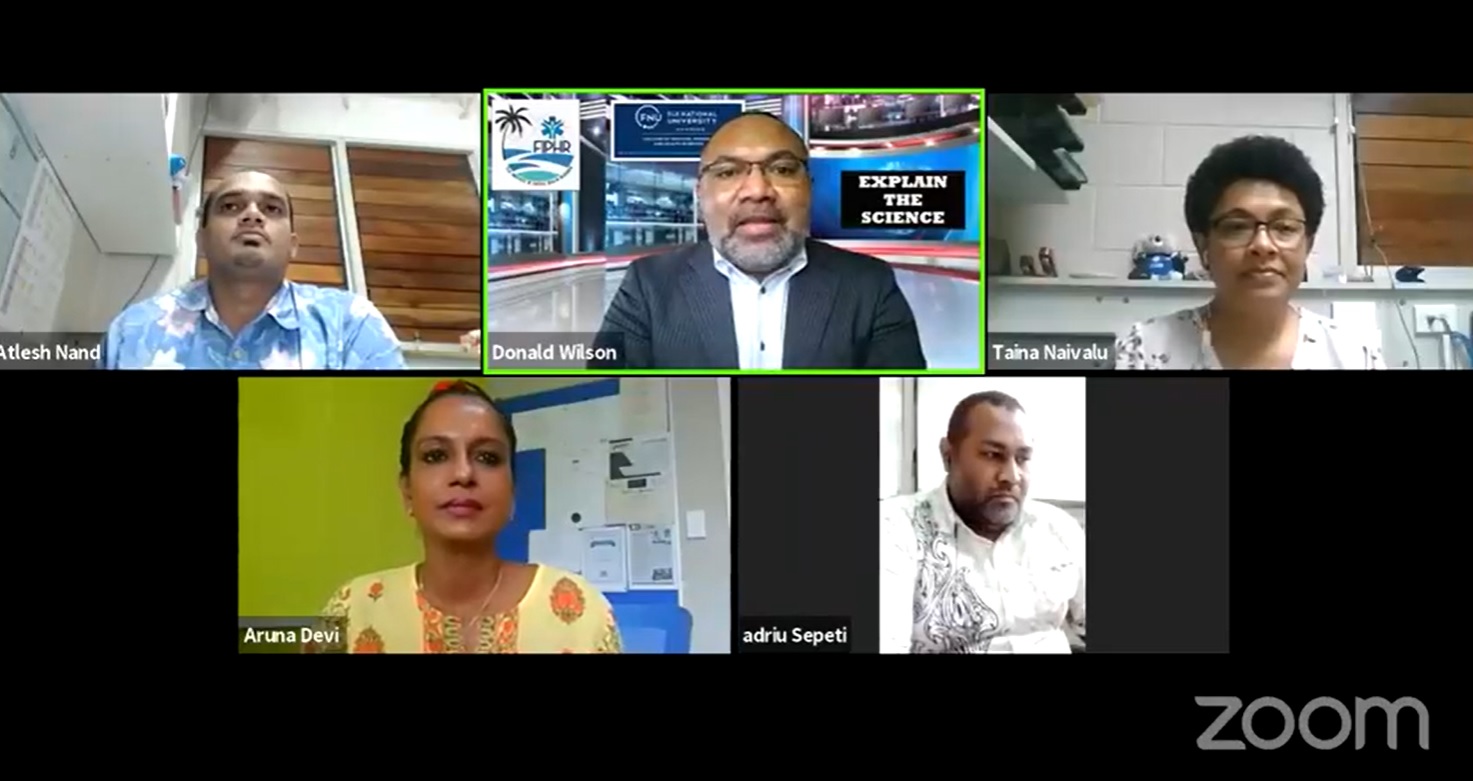Four medical lab scientists from the Fiji National University’s (FNU), College of Medicine, Nursing and Health Sciences (CMNHS) joined the “Explain the Science” panel discussions on COVID-19, intended to provide a platform for experts to speak on facts related to the COVID-19 disease, the swab test, vaccines, etc, so that people of Fiji can make informed decisions related to them.
Organised and moderated by CMNHS Associate Dean Research and Director of the Fiji Institute of Pacific Health Research (FIPHR), Dr Donald Wilson, the panelists for the 8th series consisted of Assistant Professor Aruna Devi, Transfusion Medicine lecturer Adriu Sepeti, Molecular Biology and Genetics lecturer Atlesh Nand and Microbiology and Immunology lecturer Taina Naivalu, who is also Head of Department of Pathology and Medical Laboratory Sciences.
The panel discussion was conducted via Zoom and live-streamed on the FNU and CMNHS Facebook pages. Discussions highlighted the differences between bacteria and viruses, the coronavirus and influenza virus, the transmission of the virus from wildlife to humans, the incubation period, the immune systems and how it responds, and the COVID-19 vaccines.
Dr Devi, who has worked in the Ministry of Health’s pathology laboratories for nine years before pursuing her career in academia, said people needed to understand that bacteria and viruses such as COVID-19 were different.
She said bacteria could exist on their own whilst viruses needed a host to survive, adding that structurally, the largest virus was still smaller than the smallest bacteria.
“Unlike bacteria, viruses cannot survive without a host. They can only reproduce by attaching themselves to a cell and reprogram a cell to make new viruses” she said.
Dr Devi highlighted that it was important for people to know the difference.
“For bacterial infections, it can be treated with antibiotics but for viruses, you need anti-virals to treat the disease. Most importantly, you can prevent viral infections in the first place by getting vaccinated.”
“Antibiotics do not work for viral infections.”
Naivalu added that the coronavirus and influenza viruses also differed in their genetic makeup, explaining that the makeup of the virus could be destroyed using detergents or hand sanitizers.
“That is why the Ministry of Health has emphasised that we wash our hands with soap and water because the soap will destroy the envelope (of the virus). When the envelope is destroyed the spikes won’t be stable enough to stick onto our cells,” she said.
“That’s the reason why it’s important to regularly wash ourselves with soap and water because we understand the structure of the virus. This is the same for the alcohol handwash or hand sanitizer.”
Sepeti said that because the virus has the ability to jump from one person to another, containing the virus to a certain area would cause it to die out.
For those who have contracted COVID-19, Nand said they would display varying degrees of the signs of having the virus, depending on how symptomatic or asymptomatic they were.
“The incubation period is from the time you contract the virus to when your symptoms start to show and this can be anywhere between two to 14 days,” Nand said.
Naivalu also highlighted the innate and adaptive immune response of a person to foreign and invading organisms.
The panelists also discussed how the vaccines were instrumental in containing the transmission of the virus to avoid giving rise to new variants.
Click here to access the virtual panel discussion and detailed highlights of the event.




